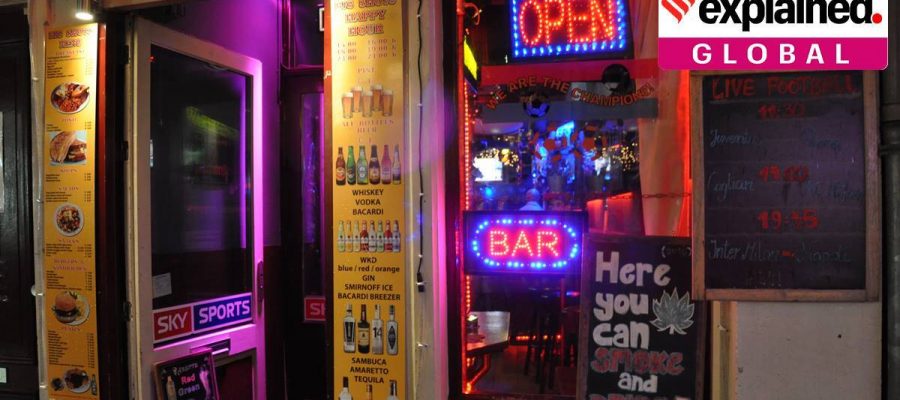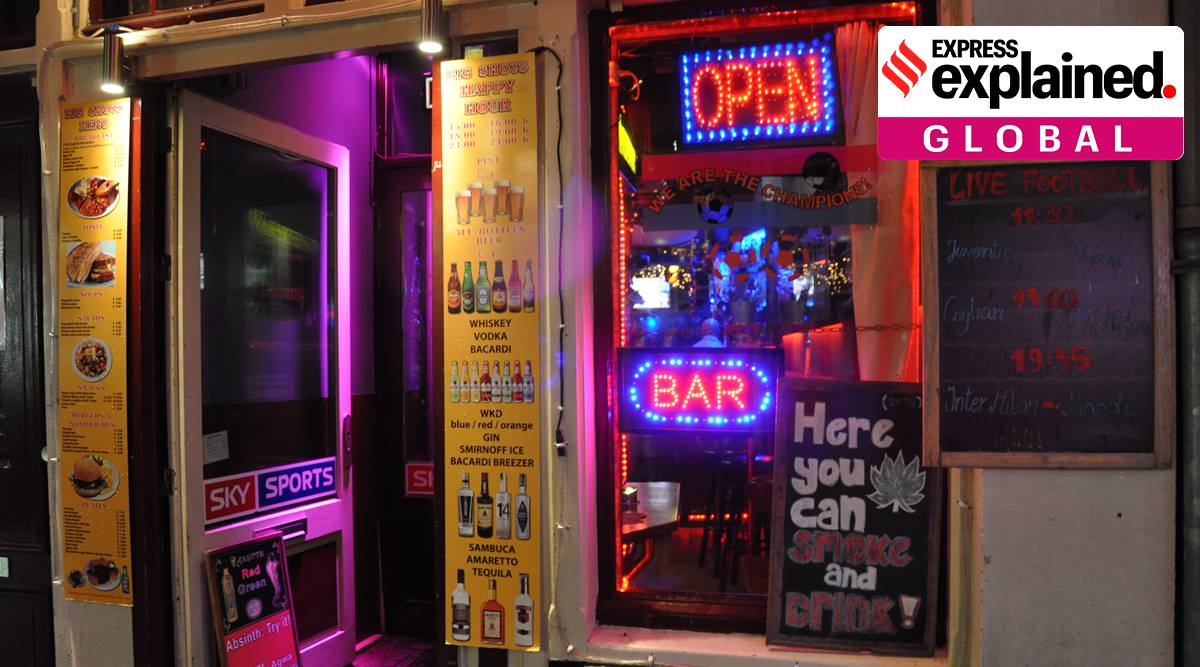The ban, which may come into force in 2022, is being pushed by Amsterdam’s environmentalist mayor Felke Halsema and is backed by police and prosecutors, reports said.
The Dutch capital of Amsterdam, which has the reputation of being the world’s “weed capital”, may soon ban non-residents from its iconic cannabis coffee shops as part of its wide-ranging measures to combat organised crime and illicit drug trade.
The ban, which may come into force in 2022, is being pushed by Amsterdam’s environmentalist mayor Felke Halsema and is backed by police and prosecutors, reports said.
Amsterdam’s recreational drug tourism
‘Soft’ drugs such as hashish and marijuana, despite being illegal in the Netherlands, support a thriving drug tourism industry in the country. According to Dutch government data, around 58 per cent of all tourists who come to Amsterdam, do so mainly to consume cannabis.
The anatomy of the cannabis plant: what is illegal under NDPS Act, what is not?
Currently, around 2 crore tourists annually visit Amsterdam, a city of 8.5 lakh people, and this number is expected to climb to 2.9 crore by 2025, as per a Guardian report. According to Forbes, Amsterdam’s coffee shops along with its well-known Red Light District attract more than 10 lakh visitors every month.
This cannabis tourism industry is allowed to survive because under Dutch law, possession of under 5 grams of the drug has been decriminalised since 1976 under the country’s so-called “tolerance policy”. This means that although production of the substance is illegal, coffee shops are allowed to sell it, creating what is popularly referred to as Amsterdam’s “cannabis culture”. Every year, Amsterdam hosts a “Cannabis Cup”, where new marijuana varieties are awarded.
During the Covid-19 pandemic, the coffee shops have remained open, but only takeout and delivery is allowed.
The proposed ban
Currently, Amsterdam has 166 coffee shops that sell cannabis. As per a Euronews report, only residents of the Netherlands with a passport could enter coffee shops once the ban comes into force.
Although Amsterdam has still not enforced a residency criteria, it has in recent years taken steps to reduce overcrowding – such as driving up taxes, restricting new hotels from coming up and reducing the number of shops that attract tourists.
In implementing these measures, Amsterdam would be following the example of Maastricht and Den Bosch cities, which have already enforced similar bans that are backed by a 2012 law.
The new measures are expected to be implemented next year upon the completion of a consultation and transition period for coffee shops. After this happens, the city could then have less than 70 shops to service the diminished crowd.
Defending the proposed move, Halsema has said that Amsterdam would remain “open, hospitable and tolerant”, but cut down on mass tourism and the criminal elements. “Amsterdam is an international city and we wish to attract tourists – but for its richness, its beauty and its cultural institutions,” she has said.
Critics, however, have said that if the ban comes into force, the cannabis trade would move from coffee shops to the streets, thus giving a chance for organised crime to expand.
Source: Read Full Article


